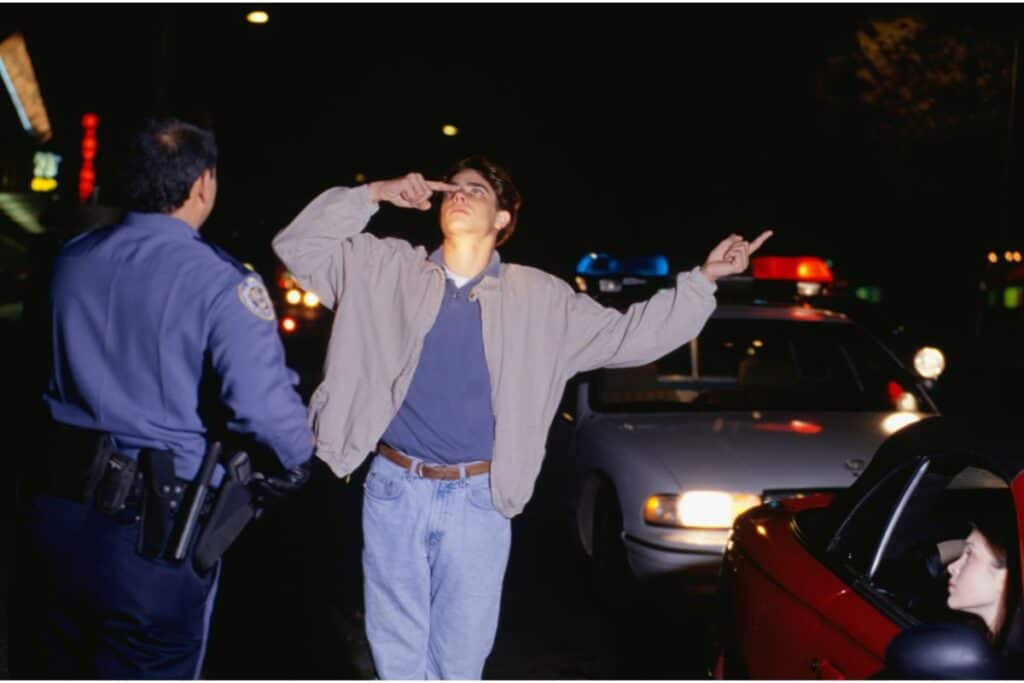Updated: January 8, 2024 | Originally Posted: July 18, 2019
Table of Contents:
Without Admissible DUI Evidence, Prosecutors Have No Case
What You’ll Learn in This Post
The Basics of Evidence Admissibility
Police Illegally Pulled You Over
Improper Administration of Field Sobriety Tests
Inaccurate or Incorrect Breath, Blood, or Chemical Testing
Failure to Read You Your Miranda Rights
Keeping DUI Evidence Out of Court Requires Skill and Experience
Without Admissible DUI Evidence, Prosecutors Have No Case
Prosecutors need evidence to obtain a DUI conviction, and if your defense lawyer can keep that DUI evidence out of court, prosecutors will be left empty-handed, with the likely result of an acquittal or dismissal of the charges against you. When prosecutors lose the ability to present critical evidence to a judge or jury, they often choose to drop the charges and dismiss the case rather than continue to pursue a now-hobbled case.
What You’ll Learn in This Post
- Prosecutors need evidence to obtain a DUI conviction, but that evidence must be admissible in court to be used against you.
- Even if your case looks grim, there are several ways that a defense lawyer can get the prosecutor’s evidence thrown out of court and their case dismissed.
- An improper traffic stop, overreach by an officer during the stop, mistakes when administering field sobriety tests, Breathalyzers, or other tests, and the failure of police to advise a driver of their rights can all be the basis for having evidence declared inadmissible and unusable by prosecutors.
That is why there is always hope when you face DUI charges. No matter how strong the prosecutor’s case seems or how big the number was after you blew into a Breathalyzer or how poorly you did on a field sobriety test, none of it will matter if a judge or jury never gets to see or hear that evidence. An improper traffic stop, an incorrectly administered test, or other mistakes or abuses by the police leading up to and after your arrest can all be the basis for throwing DUI evidence out of court.
But getting DUI evidence excluded or suppressed for being legally inadmissible isn’t easy. It requires a thorough knowledge of the law and a deep understanding of the science behind the breath, blood, and other testing Colorado law enforcement uses to prosecute DUI cases. Given that keeping DUI evidence out of court can be the key to ending your DUI ordeal, hiring a Colorado Springs DUI defense attorney who knows their stuff and has a solid track record in DUI cases like yours is imperative.
The Basics of Evidence Admissibility
Just because El Paso County prosecutors have damaging evidence to support the charges against you doesn’t mean they can use that evidence to seek your conviction. During a Colorado criminal trial, a judge or jury can only consider admissible evidence, and to be admissible, evidence must follow the Rules of Evidence established by Colorado and federal law. That is, it must be:
- Authentic
- Reliable
- Not obtained through improper or illegal means
Before and during the trial, the presiding judge will determine the admissibility of evidence that prosecutors want to present to prove their case or that a defendant wants to use to support an acquittal.
DUI evidence is often inadmissible in court, primarily due to the reliability of test results and mistakes or misconduct by officers in how they obtained evidence. When that happens, a defense lawyer can file a motion asking the judge to deem such evidence inadmissible and, therefore, unusable by prosecutors.
Here are four common ways that a skilled and experienced Colorado Springs DUI defense attorney can keep DUI evidence out of court:
Police Illegally Pulled You Over
Colorado Springs police officers can’t legally pull you over just because they feel like it. They need a lawful reason to turn on those flashing lights, such as an apparent traffic violation or driving in a way that creates a reasonable impression that you may be driving with impaired ability.
Suppose an officer pulled you over without a lawful reason. In that case, your lawyer can move to exclude any evidence obtained during and after the stop – such as field sobriety tests, breath test results, and even visible evidence like an open container – since obtaining such evidence was a direct result of a constitutionally prohibited stop. Excluding evidence on such grounds is often referred to as barring the use of “fruit from the poisonous tree.”
Even if police do lawfully pull you over, such as for a traffic violation, that doesn’t give them the legal right to ask you if you’ve been drinking or test you for impairment. Once the police officer has completed their original purpose for the stop – such as ticketing you for speeding, running a stop sign, etc. – they can’t legally continue detaining you unless they have a reasonable suspicion that you have been party to an additional crime, including driving under the influence.
If Colorado Springs police stop you and administer tests without this reasonable suspicion, your defense attorney can object to everything that occurs afterward (including any breath, blood, or chemical test results), thus keeping that DUI evidence out of court.
Related: Can I Get a DUI While Parked?
Improper Administration of Field Sobriety Tests
If Colorado Springs police suspect you are driving under the influence of alcohol or drugs, they may request that you perform field sobriety tests (FSTs).
While commonly used, these tests are highly subjective. If an officer administers them incorrectly, they can make even a completely sober person appear impaired. Your lawyer can move to exclude the FST results based on how the officer conducted them and/or how they interpreted the results.

Inaccurate or Incorrect Breath, Blood, or Chemical Testing
The various devices police use to test for blood alcohol content (BAC) are famously unreliable and often inaccurate, especially when administered during a stop, especially those administered in the field. Inadequate maintenance or calibration of the device, improper administration of the test, and other external and biological factors can call into question the reliability and, thus, admissibility of the test. Such deficiencies can quickly turn a legal 0.07% BAC into an illegal 0.08% BAC.
A skilled DUI defense attorney can move to keep this DUI evidence out of jail on the basis of its questionable accuracy and reliability for many reasons, including:
- The test’s timing
- Lack of needed qualifications or training of the test administrator
- Poor maintenance, calibration, and testing of the device
- Failure to follow established test procedures
- Incorrect mixing of testing chemicals
- Contamination of the device or test sample
- Other factors impacting blood alcohol readings (diet, acid reflux, existing “mouth alcohol,” and breathing patterns).
Related: What Happens if I Refuse a Breathalyzer Test in Colorado?
Failure To Read You Your Miranda Rights
Another way your drunk driving attorney can work to keep DUI evidence out of court relates to your Miranda Rights. You’ve seen enough TV shows and movies to know what a Miranda warning is. Named after a famous case before the U.S. Supreme Court in 1966, the Miranda warning consists of a list of criminal defendants’ rights that police must read to a person when they place them under arrest and before they can start asking them questions. (“You have the right to remain silent. Anything you say can and will be used against you in a court of law…”)
If you make any incriminating admissions or statements under questioning, and the arresting officer failed to advise you of your Miranda rights beforehand, those statements are inadmissible as evidence of your guilt in a court of law.
Keeping DUI Evidence Out of Court Requires Skill and Experience
As you can see, an arrest for DUI does not necessarily mean you are up the proverbial creek without a paddle. A skilled and experienced Colorado Springs drunk driving defense attorney, especially one who was a former El Paso County prosecutor, knows how to keep DUI evidence out of court.
As forceful and skilled advocates, they will search for every potential weakness in the prosecution’s case and every problem with their evidence to give their clients the best chance of obtaining an acquittal, dismissal, or reduction of the charges.
To put the former prosecutor’s advantage to work for you, contact James Newby Law today to schedule your free, confidential initial consultation.


